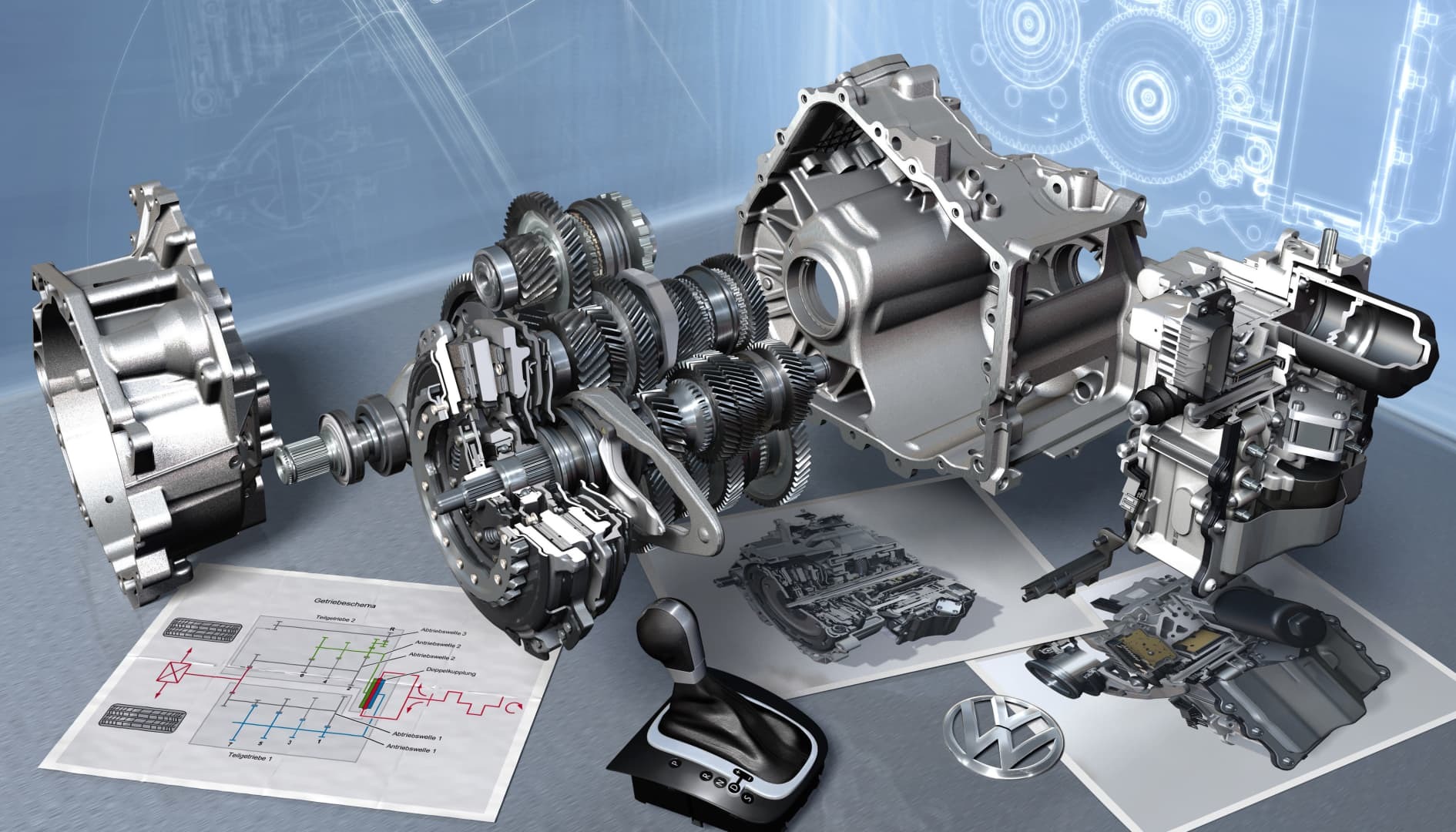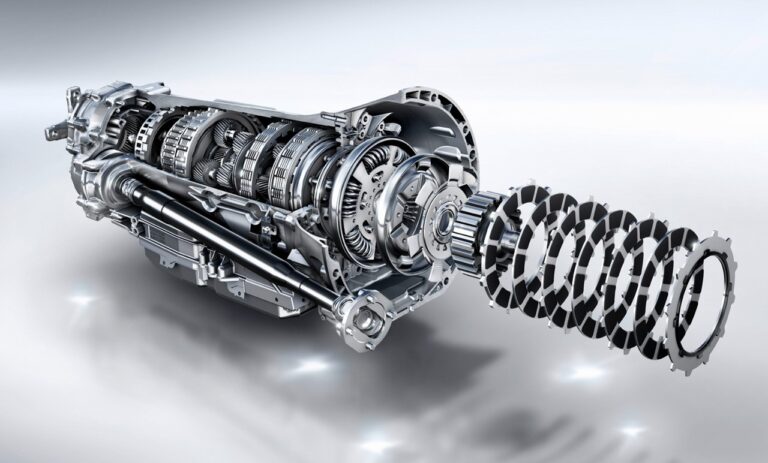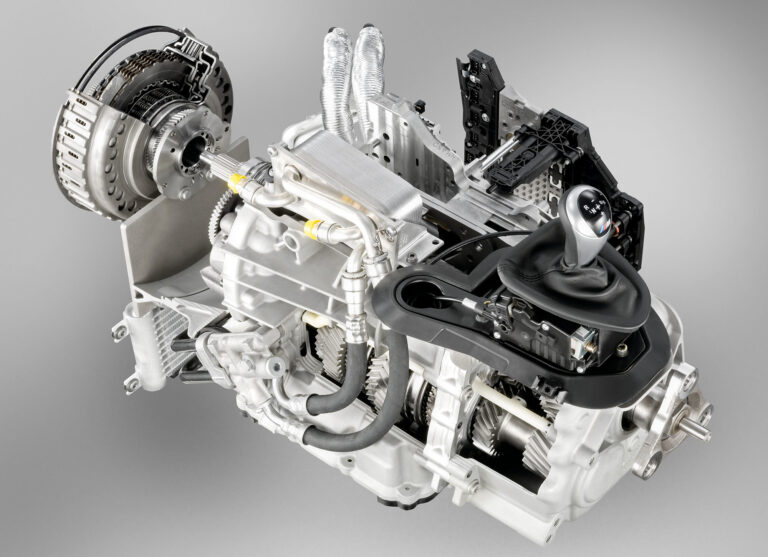Geargbox (DCU) Tunning

What is DSG Gearbox?
DSG stands for “Direct-Shift Gearbox,” which is a type of automatic transmission used in some vehicles, particularly those manufactured by Volkswagen Group (VW, Audi, Porsche, etc.). DSG gearboxes are known for their rapid gear changes and smooth performance, combining the efficiency of a manual transmission with the convenience of an automatic.
The DSG gearbox is a dual-clutch transmission that uses two separate clutches to shift gears quickly and smoothly. The software that controls the DSG gearbox is responsible for a variety of functions, including:
* Determining when to shift gears
* Calculating the optimal shift points
* Managing the torque flow between the engine and the transmission
DSG Tuning
DSG gearbox tuning, also referred to as DSG tuning or transmission tuning, involves making adjustments to the electronic control unit (ECU) software of the DSG transmission. The goal of DSG gearbox tuning is to optimise the transmission’s behaviour, performance, and characteristics according to the preferences of the driver. This process can be done by modifying the software parameters that control things like shift points, shift speed, launch control, and torque management.
DSG tuning involves modifying this software to change the way it operates. This can be done by changing the shift points, the torque limit, or the way the gearbox responds to driver inputs.
DSG tuning can be a safe and effective way to improve the performance of a DSG-equipped vehicle. However, it is important to have the tuning done by an approved Tunning Dealer who understands the DSG gearbox and its limitations.
* Faster shift speeds
* Reduced lag
* Increased torque limit
* Launch control
* Improved throttle response
* Smoother gear changes
Improved Performance
DSG tuning can enhance the responsiveness and acceleration of the vehicle. By adjusting the shift points and shift speeds, the transmission can shift gears more quickly and at the optimal engine RPM, resulting in improved performance.
Customisation
Drivers can customise the behaviour of the transmission to match their driving style. This can range from making shifts smoother for everyday commuting to making shifts more aggressive for sportier driving.
Optimised Fuel Efficiency
Tuning can help the transmission shift gears more efficiently, which can lead to better fuel economy in some scenarios.
Launch Control Enhancement
Launch control is a feature that optimizes acceleration from a standstill. Tuning can refine this feature for quicker and smoother launches, which is particularly beneficial for high-performance vehicles.
Reduced Lag
Tuning can minimise gear change delay, reducing the “shift lag” that some automatic transmissions can exhibit.
What are the risk involved?
* Increased wear and tear on the gearbox
* Possible damage to the gearbox
* Voiding the warranty
It’s important to note that while DSG gearbox tuning can offer performance benefits, improper tuning or aggressive adjustments can potentially lead to premature wear and tear on the transmission components. Therefore, if you’re considering DSG gearbox tuning, it’s advisable to work with a professional and experienced tuning specialist who understands the intricacies of DSG transmissions and has a good understanding of the potential implications of tuning.
If you are considering DSG gearbox tuning, it is important to weigh the benefits and risks carefully. It is also important to choose a reputable tuner who can do the job correctly.
VSG/7G-TRONIC TUNNING

VGS stands for fully integrated transmission control unit. It is a type of automatic transmission control unit that is used in some Mercedes-Benz vehicles. The VGS / NAG2 (7G-Tronic) is a single unit that controls all aspects of the transmission, including gear selection, shift timing, and torque converter lockup.
The VGS was first introduced in 2003 in the Mercedes-Benz 7G-Tronic automatic transmission. It has since been used in a variety of other Mercedes-Benz vehicles, including the C-Class, E-Class, S-Class, and CLS-Class.
The VGS has a number of advantages over traditional automatic transmission control units. It is more compact and efficient, and it can be more easily updated with new software. The VGS also allows for more precise control of the transmission, which can improve fuel economy and performance.
Here are some of the problems that can occur with VGS transmissions:
* Faulty VGS unit: This can cause the transmission to malfunction, such as shifting erratically or not shifting at all.
* Faulty sensors: The VGS unit relies on a number of sensors to operate properly. If one of these sensors fails, it can cause the transmission to malfunction.
* Mechanical problems: The VGS unit is a complex piece of machinery, and it is susceptible to mechanical problems. These problems can be caused by wear and tear, or by abuse.
Tuning VGS/7G-Tronic Transmission
Tuning a VGS transmission is the process of modifying the software of the VGS unit to improve its performance. This can be done to increase the speed of gear changes, improve fuel economy, or make the transmission more responsive.
There are a few different ways to tune a VGS transmission. One way is to use a software tune, which modifies the firmware of the VGS unit.
Another way to tune a VGS transmission is to use hardware modifications, such as installing a performance clutch or a different VGS unit. Hardware modifications can be more expensive than software tunes, but they can also provide more significant performance improvements.
If you are considering tuning your VGS transmission, it is important to do your research and choose a reputable tuner. It is also important to understand the risks involved in tuning a transmission, as it can void the warranty and lead to premature wear and tear.
Here are some of the benefits of tuning a VGS transmission:
* Faster gear changes
* Improved fuel economy
* More responsive transmission
* Enhanced driving experience
It is important to choose a tuner who has experience tuning cars with your specific make and model. They should also be able to provide you with a warranty on their work.
Here are some of the things to ask a tuner before tuning your VGS transmission:
* What kind of tune do they offer for my car?
* What are the benefits of their tune?
* What are the risks of their tune?
* Do they offer a warranty on their work?
DKG/DCT Gearbox Tuning

DKG stands for Doppel Kupplungs Getriebe and DCT is the English translation to double clutch transmission. It is a type of automatic transmission that uses two clutches to shift gears quickly and smoothly. The first clutch is responsible for the odd gears (1, 3, 5, and 7), while the second clutch is responsible for the even gears (2, 4, 6, and R). This allows the next gear to be pre-selected, so that the shift can happen almost instantaneously.
DKG transmissions are typically found in high-performance cars, as they can provide faster acceleration and better fuel economy than traditional automatic transmissions. They are also becoming increasingly common in luxury cars, as they offer a more engaging driving experience than traditional automatics.
Overall, DKG transmissions are a good choice for drivers who want a car with fast acceleration, good fuel economy, and a sporty driving experience. However, they are more expensive to buy and maintain than traditional automatic transmissions.
Here are some of the cars that use DKG transmissions:
* BMW M3 E90/E92/E93 4.0 V8 + F87/F80/F82/F83 3.0 Turbo
* M4 F87/F80/F82/F83 3.0 Turbo
* BMW M5+M6 F10/F13 4.4 V8 Twin Turbo
* BMW E92/E89 335i
Tuning DKG/DCT Gearbox/Transmission
Tuning a DKG gearbox with ECU Remapping can offer a number of benefits, including:
* Faster gear changes
* Improved fuel economy
* More responsive transmission
* Enhanced driving experience
If you are considering tuning your DKG gearbox, it is important to weigh the risks and benefits carefully. It is also important to choose a reputable tuner who can help you to achieve the desired results without damaging your transmission.
Here are some things to consider when tuning a DKG gearbox:
* The type of car you have
* The engine size
* Your driving style
However, it is important to note that tuning a transmission can also come with some risks, such as:
* Voided warranty
* Premature wear and tear
* Transmission failure
If you are considering tuning your DKG gearbox, it is important to weigh the risks and benefits carefully. It is also important to choose certified Quantum Tuning Dealer who can help you to achieve the desired results without damaging your transmission.
It is important to choose a tuner who has experience tuning cars with your specific make and model. They should also be able to provide you with a warranty on their work.
Here are some of the things to ask a tuner before tuning your DKG gearbox:
* What kind of tune do they offer for my car?
* What are the benefits of their tune?
* What are the risks of their tune?
* Do they offer a warranty on their work?
* How much does their tune cost?
DKG/DCT Tuning Options
* Software tune: This is the most common type of DKG tuning. It involves modifying the software of the transmission control unit (TCU) to improve its performance.
* Hardware modifications: This involves installing performance parts, such as a different TCU or a stronger clutch. Hardware modifications can be more expensive than software tunes, but they can also provide more significant performance improvements.
* Combination of software and hardware modifications: This is the most comprehensive type of DKG tuning. It involves combining software and hardware modifications to achieve the best possible results.
The best type of DKG tuning for you will depend on your individual needs and budget. If you are not sure which type of tuning is right for you, it is always best to consult with a us.



